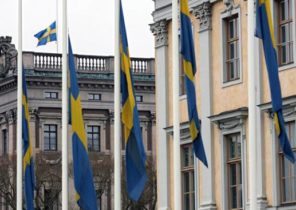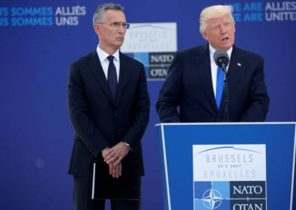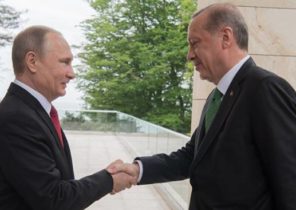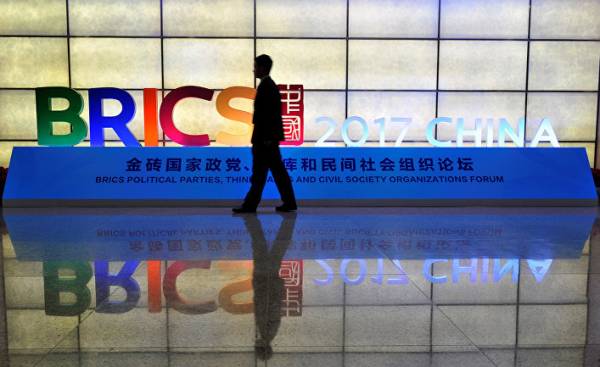
After 1990, when the revolution in information and communication technologies has led to a significant smoothing of the asymmetry between developed countries and developing economies, there is a rapid globalization of the world.
Incredible consolidation of global supply chains moved factories, income, jobs and knowledge in States with developing economies.
In just two decades the relative share of GDP of the countries “Big seven” (USA, Germany, Japan, France, UK, Canada and Italy) fell by more than 20 percentage points from 66% to 43% of world GDP.
This indicator is best illustrated by the success of globalization — the process of rapprochement and the creation of greater equality between the countries on the planet.
On the one hand, in rich countries the standard of living of the next generation, it is likely to be lower than at present, creating frustration and anti-globalization sentiments.
On the other — residents of developing countries in the coming years will have a chance to improve their well-being. In China, India and some Asian, Eastern European and Latin American countries with developing economies is growing today a new “middle class”
This “new era”, which is entering the world, was prepared by newly formed coalitions in which countries do not follow the economic, cultural and geographic logic of the past, as was the case with the G7 and the European Union.
The BRICS group (Brazil, Russia, India, China and South Africa) is one example of such a coalition. Formerly called States whales, the BRICS countries occupy 24% of the area of the planet, which is home to 42% of the population, and they comprise 23% of global GDP — whereas in 1990 the figure was only 10%.
Today BRICS is for Brazil one of the largest international projects that is associated with a broad range of political and diplomatic events: it is, among other things, on strategic dialogue, international security, cooperation in the G20 and on the New development Bank of BRICS countries.
However, in those areas that could provide more concrete opportunities for integration, such as trade and investment, BRICS still can not boast of significant results.
A striking example is the agribusiness. At the seventh meeting of agriculture Ministers of the BRICS countries, which two weeks ago took place in Nanjing (China), Brazilian Minister of Blero Maggie suggested to establish a working group to monitor and vyrabotki specific proposals for the expansion of trade and investment flows in the agricultural sector among the countries of the bloc.
The gross value of agricultural production of the BRICS countries since 1960 has increased from 24% to 42% of the world total. Most of those 200 million, which in coming years will come from “food insecurity” live in the BRICS, particularly in China and India. However, the ratio between imports and consumption of agricultural products is still very low and is about 10%.
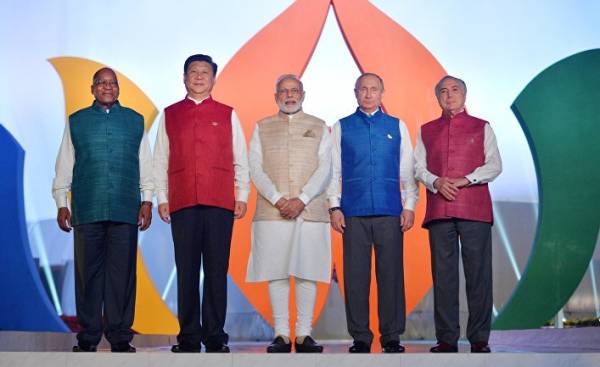 © RIA Novosti, Alexei Druzhinin | go to fotoracconti family photo of the BRICS leaders in the Indian national dress
© RIA Novosti, Alexei Druzhinin | go to fotoracconti family photo of the BRICS leaders in the Indian national dress
Maggie has also offered to host the agricultural business forum of the BRICS, to develop partnerships and to encourage mutual investments between the companies. The Minister clearly formulated its position regarding the progress in agriculture, however, it was met with serious resistance from the other members of the unit.
Eight years after the emergence of the BRICS members still have to overcome bureaucratic obstacles and can not boast of simplified procedures in the areas of trade, business and investment.
In the case of agriculture increased integration of the BRICS countries, even if carried out, will bring huge benefits, in terms of food security, sustainable development and technical cooperation. Complementarity between the countries is huge and could be used more efficiently.
In the last decade, Brazil in diplomatic preferences relies on the BRICS and, of course, because of this it has strengthened its geopolitical position in accordance with changes in economic, political and cultural life of the planet.
However, this is not enough. You need to strive for a more equitable, open and complementary to the structures of trade and investment, the results of which would justify the hundreds of meetings which are held regularly by the BRICS.
